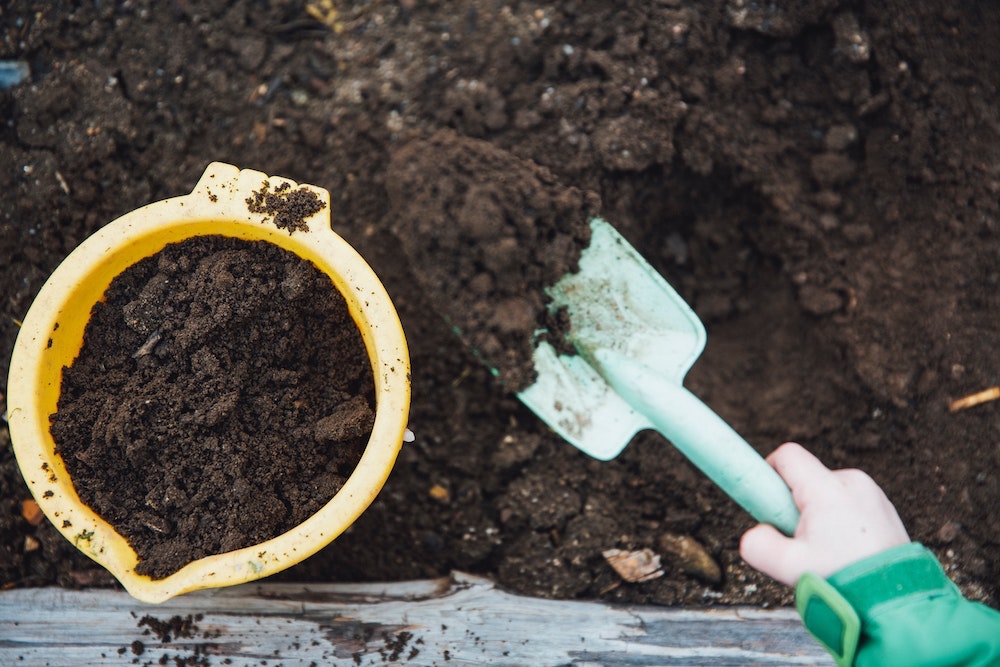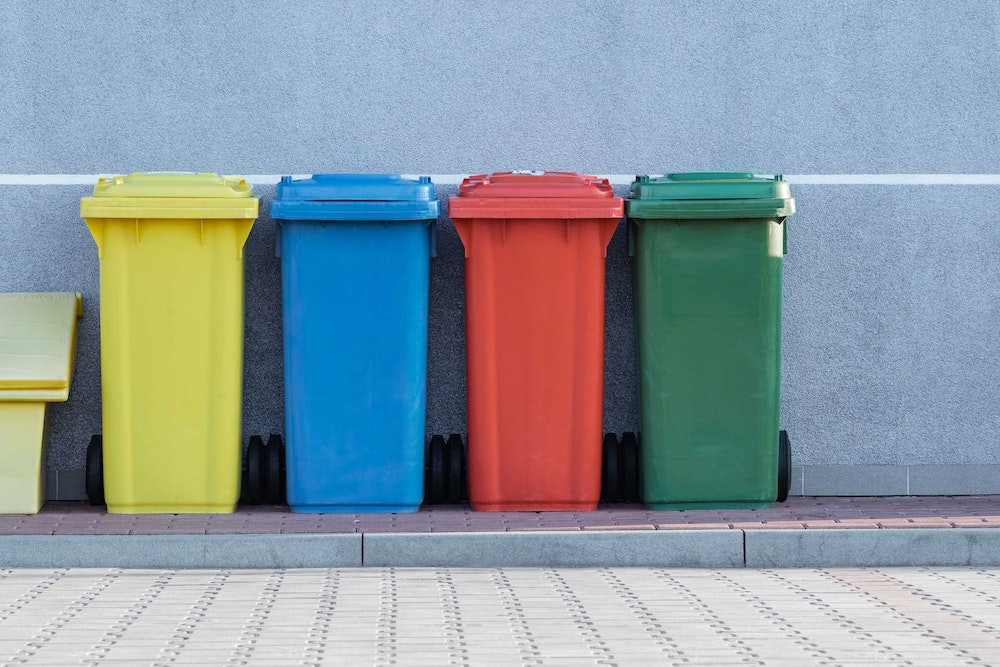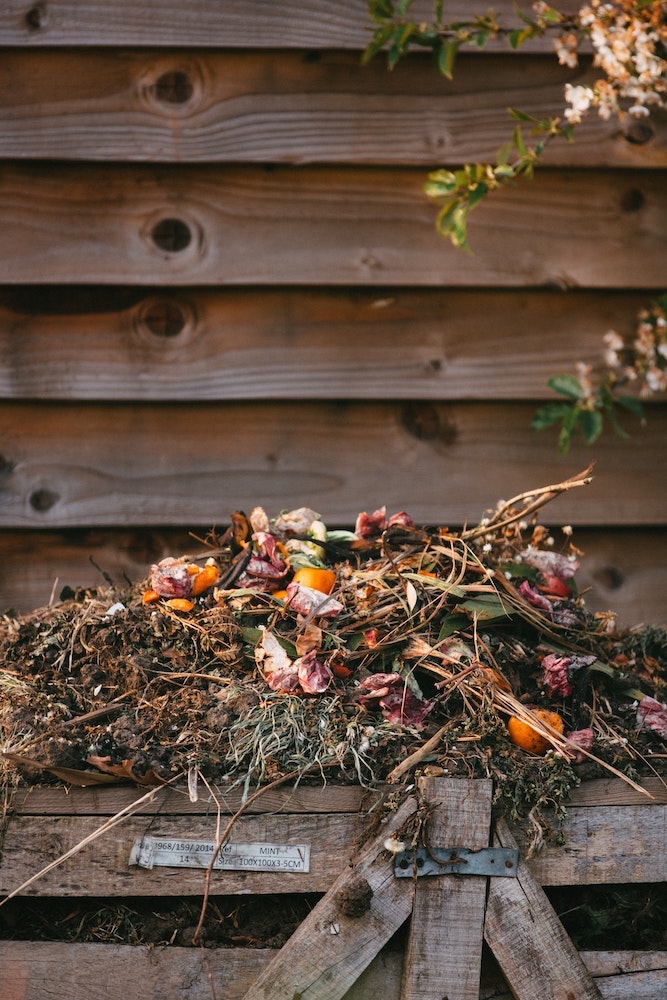What’s the situation?
In Georgia, food residuals make up 12% of landfill waste annually. That’s nearly 151 pounds of food per Georgian every year, a total of 1.6 billion pounds of trash annually in GA. This amount of food waste also wastes $1.92 billion each year. This food and money waste is unnecessary and could be converted to profit through composting. Composting removes trash from landfills, reduces greenhouse gas emissions, and provides nutrient rich compost that can be used in gardens, community areas, and agriculture.

What Can You Do Right Now?
The best thing you can do right now is try to minimize you food waste. Create a meal plan, use this to only buy what you need, and have fun with leftovers.
You can look into a commercial composting service or start your own compost pile at home.
Why compost?
Wasted food is the single largest category of solid waste that goes into Georgia’s landfills and one of the top personal contributors to climate change. In landfills, food breaks down anaerobically (without oxygen) since it is surrounded by other materials. This process releases methane, a chemical dangerous to the environment. However, in compost, food breaks down aerobically (with oxygen) since compost piles are turned to expose their contents to air. The Georgia Environmental Protection division recommends composting as a means of mitigating the large amount of wasted food that Georgians produce.
Adding compost facilities typically creates jobs and pays for itself. The Athens-Clarke County compost facility (which receives food waste from the ACC Solid Wastes Dept., local commercial entities, and a composting group from Atlanta) composts over 1,000 tons of food waste annually. This facility had an up-front investment of $1.5M and covers 4.5 acres. It sells its compost for $20 per cubic yard commercially and for $2 per 5-gallon bucket. The ACC Landfill consistently sells out of compost, and it is one of their greatest sources of revenue. The landfill pays for itself and turns a profit annually.
Compost produced in state would nourish the farms from which Georgians buy their produce and improve crops, further strengthening an important industry for the state.
Composting would also create a healthier environment for Georgia’s citizens. Landfills are typically located in low-income and rural areas of the state, exacerbating chronic health conditions for already underserved populations. Reducing landfill waste and runoff will improve people’s lives by preventing their exposure to harmful chemicals and unpleasant odors. Slower filling of landfills leads to a decreased need for new landfill sites.

What’s the Bigger Picture Situation?
Currently in Georgia, composting is only available in household gardens or through private companies. This is helpful to some Georgians but does not serve the majority. Many Georgians are unable to compost due to price, location, or space requirements. Overall, composting in Georgia takes more effort than most people are willing to give.
Implementing low-cost, city-run compost systems creates jobs in building, managing, and maintaining the programs. Once nutrient rich compost is available, it can be sold to farms, nurseries, landscapers, and individuals for a profit to the city.
Composting is good for the earth and good for the economy. Georgia has an untapped potential in the amount of food waste it could be recovering and using for profit.
What have others Cities and States done?
In Gilroy, California (population 51,700), compost collection was implemented in 2005. All residents in Gilroy receive compost bins alongside their regular trash bins at no additional cost. Waste is collected weekly. Residents get 96-gallon bins for compost and may add a 32-gallon can for an additional cost if needed. Food scraps, yard trimmings, and paper products can be composted in these bins.
Gilroy residents pay for their regular waste disposal in a Pay-As-You-Throw (PAYT) system. They pay for the amount of garbage they throw away; 32, 64, and 96-gallon cans cost about $27, $41, and $54 per month, respectively. This incentivizes residents to divert as much garbage as possible to recycling and composting streams, which are made equally as convenient to them through their city’s waste program.
Gilroy implemented their curbside composting program with South Valley Organics, which processes and sells the compost.
In Baltimore, Maryland (population 2,325,000), the city’s Office of Sustainability (BOS) has implemented a Food Matters program in effort to reduce food waste. About 1/3 of all materials sent to the landfill in Baltimore were compostable, and about 22% of the city’s residents were food insecure.
The BOS has implemented a decentralized community composting system with drop-off locations throughout the city, an education program about reducing food waste, and a food redistribution program. It aims to reduce half of all food waste generated by the city by 2030.
The Composting Council has created a toolkit to aid in implementing programs.

What should Georgia do?
Providing a method for industrial composting, and implementing curbside composting would reduce citizens’ carbon footprint, create new jobs and a new industry, generate revenue for the city and state, protect quality of life for lower-income Georgians, and support agricultural practices in Georgia. Georgia, its citizens, and the planet would benefit from curbside or community-based composting programs being implemented by the state or in select communities.
What Can I Do?
In the meantime, check out these privately-owned compost companies in Georgia.
Here is a link from Compost Now listing companies all over the the US.
- Atlanta
- Forsyth
- Suwanee
- Athens
Spread the word!
Click below to download our fact sheet. Print or email it to share with friends, family, co-workers, and legislators!
